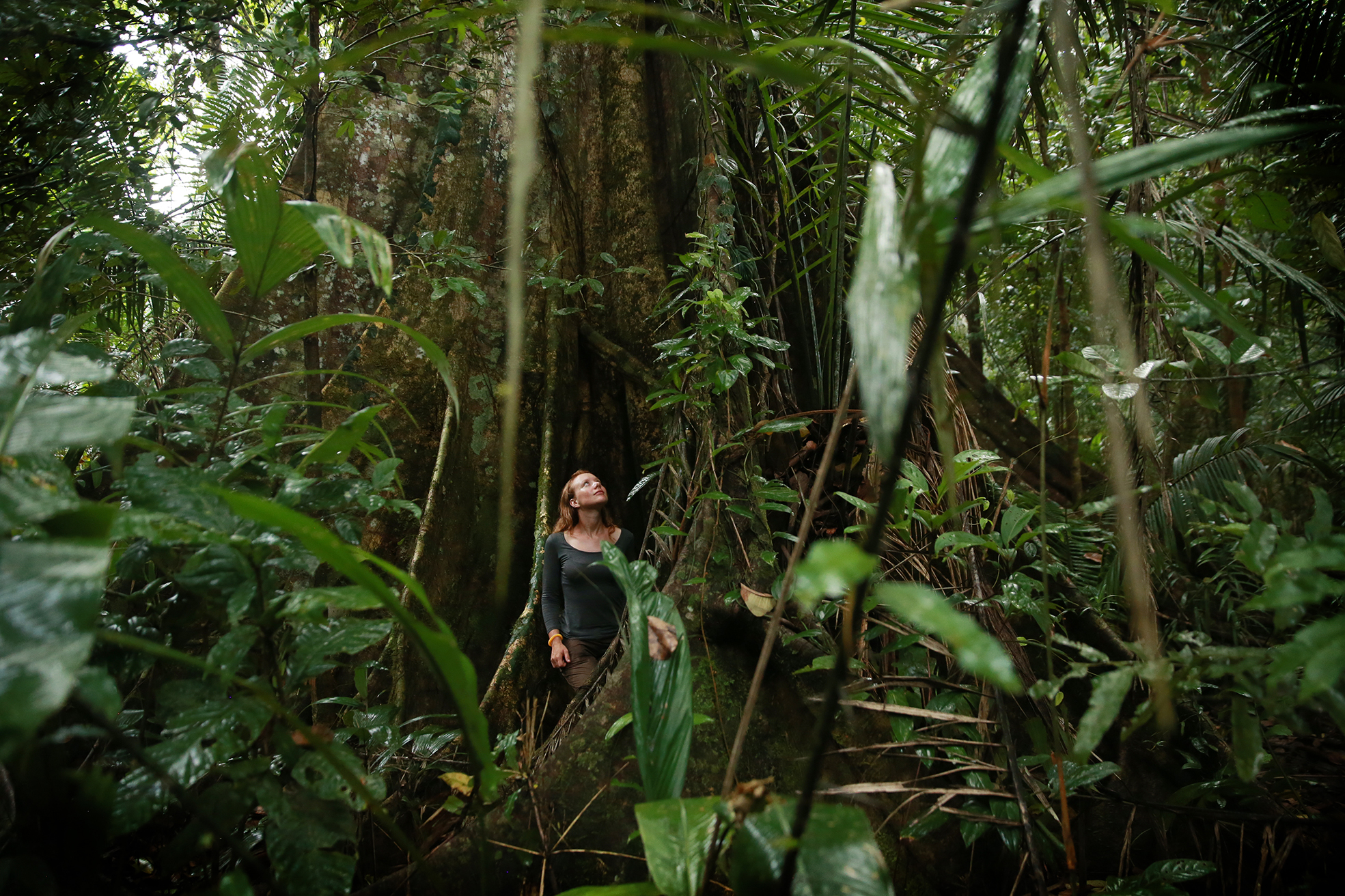
Jacqueline Davis takes part in project to map jaguar habitats in the Amazon.
As far as we know, there is very little data in Peru about jaguars, so this is very much a first. It’s also a first in using virtual reality technology for a really serious purpose, and not just for the ‘ooh-ah’ of the virtual environments. We can use it for scientific purposes and extract information about how to help with decision-making in conservation.
Professor Kerrie Mengersen
A Gates Cambridge Scholar has taken part in a remarkable project to help ensure the survival of jaguars in Peru through the use of statistics, mathematical modelling, virtual technology and knowledge from indigenous people living in the Amazon.
Jacqueline Davis took part in a four-week expedition to some of Peru's deepest jungles organised by the ARC Centre of Excellence for Mathematical and Statistical Frontiers [ACEMS], Queensland University of Technology and the Lupunaluz Foundation. They captured countless photos and videos using 360-degree and 3D cameras. The material has been used to create virtual environments which can be used by international experts on jaguars and the Amazon rainforest with the aim of head-mounted display goggles without them having to travel to Peru.
The International Union for Conservation of Nature (IUCN) lists the jaguar as near threatened as it once roamed from southwestern United States to Argentina but has lost almost half of this habitat. According to the IUCN, the carnivore is almost eliminated in the US and their numbers have diminished to at most 15,000 in the wild.
Professor Kerrie Mengersen, Deputy Director of ACEMS who led the expedition, said: “As far as we know, there is very little data in Peru about jaguars, so this is very much a first. It’s also a first in using virtual reality technology for a really serious purpose, and not just for the ‘ooh-ah’ of the virtual environments. We can use it for scientific purposes and extract information about how to help with decision-making in conservation.”
In addition to capturing the virtual environments, one of the main goals of the trip was to map jaguar populations in Peru. “Jaguars are notoriously secretive and the rain forest is very dense,” says Professor Kevin Burrage, an ACEMS Chief Investigator at QUT. “Thus animal abundance data is very difficult to collect, so mathematical and statistical models can help fill in any missing or messy data.”
To fill in those data gaps, the ACEMS researchers – and Jacqueline – spent a lot of time talking with people who live in the area. They were then able to use that information in their statistical models. “The aim of the project is to make better decisions about jaguar conservation in Peru,” says Professor Mengersen. “We can bring mathematical and statistical modelling to bear on the tiny bit of data that we might have and then a lot of expert opinion that we do have, and we can combine that to improve our models, predictions and estimates. So it’s a really exciting project with very significant impacts.”
Jacqueline [2014] studied psychology at the University of Queensland before coming to Cambridge to do a PhD in Psychology in 2014. She became involved in the jaguar project through Professor Mengersen, with whom she has worked in the past including on a project researching the killing of orangutans in Borneo. She was preparing to do fieldwork for her PhD in Vanuatu, but a massive cyclone devastated the area she was due to go to so she was forced to look for somewhere else. Professor Mengersen suggested the jaguar conservation project in Peru which was near a village where Jacqueline could do some fieldwork research.
So in October and November last year she found herself trekking through the Peruvian jungle carrying one of the 360-degree cameras with the QUT research team.
Before joining the jaguar project, Jacqueline went to villages in the Lake Imiria region to do her fieldwork. Her research focuses on cultural variation in children's toy preference and will eventually include data from several field locations around the world.












